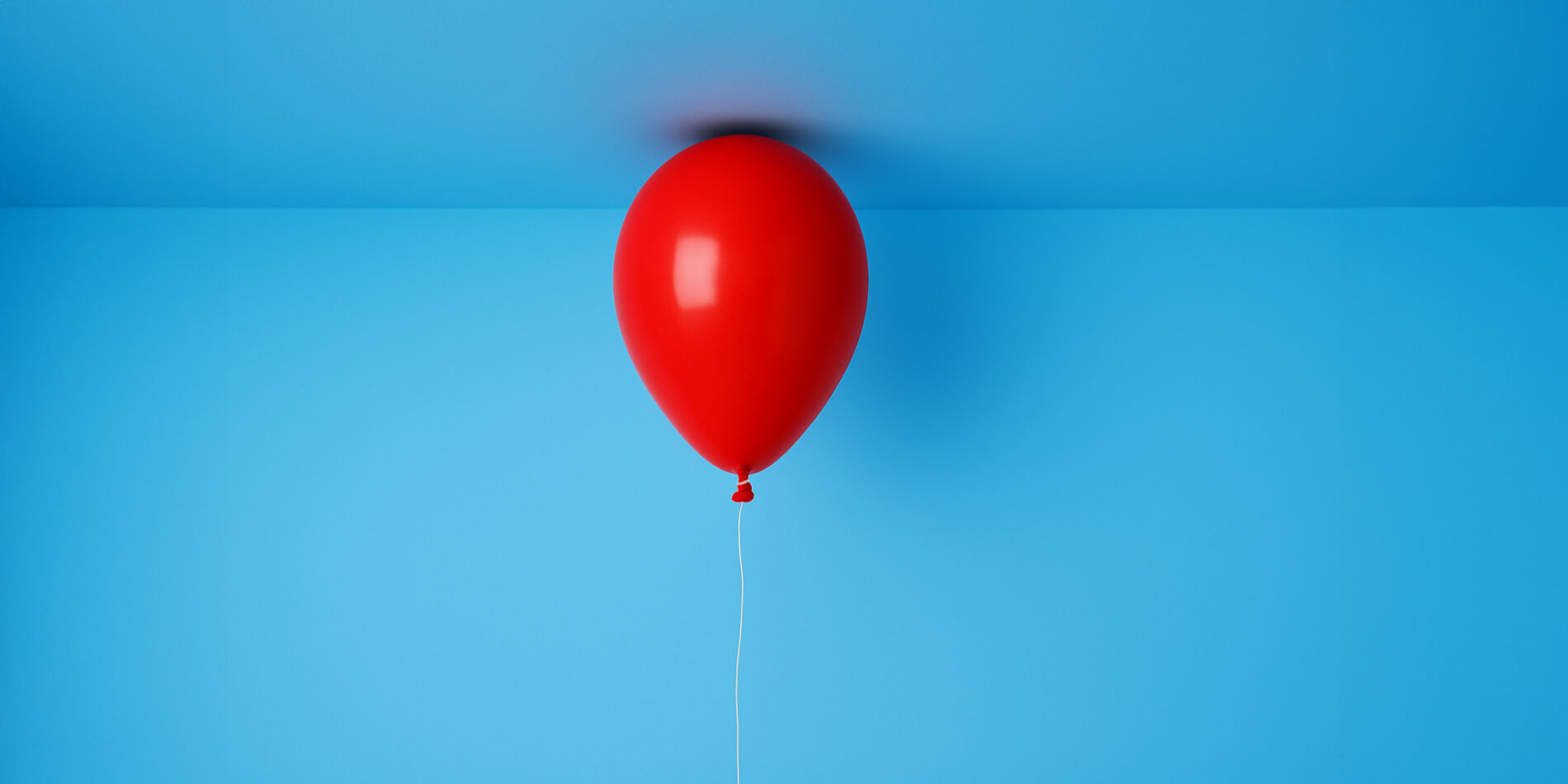Limited Liability in a GmbH and AG: Where It Holds and Where It Doesn’t

The stock corporation (AG) and limited liability company (GmbH) are two of the most popular legal forms for businesses in Switzerland. One of their main features is that they are both designed to provide limited liability, meaning shareholders’ personal assets are protected from the company’s debts and obligations. However, the important question is, just how foolproof is this protection in reality?
This article explains how limited liability works in Swiss AGs and GmbHs, when it breaks down in practice, and under what conditions directors and managing shareholders can be held personally liable. It also covers the consequences of liability, relevant time limits, common risk scenarios, and strategies to help minimize personal exposure.
Book a free initial consultation with our experts.
Book a callHighlights
- AG and GmbH offer limited liability, but managers can be personally liable
- Breach of duty, damage, causality and fault lead to personal liability
- Unpaid AHV contributions, capital withdrawals or bankruptcy defaults are risk factors
- GmbH shareholders are liable more frequently as they are often managing directors at the same time
- D&O insurance, clear structures and documentation help to reduce the liability risk
Content
- Limited Liability in a GmbH and AG: Where It Holds and Where It Doesn’t
- Highlights & content
- Legal foundations of limited liability
- Does limited liability mean complete protection?
- When is a director or managing shareholder personally liable?
- What are the consequences if you’re held personally liable?
- What are the time limits for liability claims?
- Practical scenarios where personal liability arises
- Comparative risk: GmbH vs AG
- How can you minimize your risk?
- Final thoughts: don’t just trust the legal form
- Your digital trustee partner
- FAQ
- Trusted by over 150 companies
Legal foundations of limited liability

Under Swiss law, both AGs and GmbHs are independent legal entities. This means that the company itself is responsible for its debts and obligations, not the individuals who own or manage it. This principle is codified in the following provisions of the Swiss Code of Obligations (CO):
AG (Stock Corporation)
An AG (stock corporation) is defined and governed by Articles 620 to 763 of the Swiss Code of Obligations (CO). The following articles are particularly relevant in understanding how limited liability works in an AG:
- Art. 620 CO defines the nature of a stock corporation and explicitly states that only the company itself is liable for its debts.
- Art. 621 CO requires that the nominal share capital must be at least CHF 100,000, and Art. 632 CO goes on to state that at least CHF 50,000 or 20% (whichever is larger) of the nominal share capital must be paid in upon incorporation. This minimum capital requirement serves as a security buffer for creditors.
- Art. 680 CO clarifies that shareholders cannot be required to contribute more than the nominal value of their shares, even through the articles of association.
- Art. 725 CO outlines the duties of the board of directors in case of capital loss or over-indebtedness, placing an obligation on directors to take appropriate action when financial stability is at risk. Measures include convening a shareholder meeting, preparing audited interim accounts, and, if necessary, notifying the court.
- Arts. 753–755 CO set out the liability framework for company founders, directors, and auditors. In particular, Art. 754 CO establishes that the directors and all those involved in the company management may be held personally liable for damages caused by an intentional or negligent breach of duty, which includes not complying with those duties outlined in Art. 725 CO.
GmbH (Limited Liability Company)
A GmbH (limited liability company) is defined and governed by Articles 772 to 827 of the Swiss Code of Obligations (CO). The following articles are particularly relevant in understanding how limited liability works in a GmbH:
- Art. 772 CO defines the GmbH as a legal entity with its own rights and obligations, separate from those of its shareholders, and specifies that the company is liable for its own debts. It also briefly mentions that, in a GmbH, the articles of association may stipulate additional capital contributions and shareholder obligations (Art. 772 para. 2 CO).
- Art. 773 CO requires a minimum share capital of CHF 20,000, which must be fully paid in upon incorporation. This ensures that creditors have a guaranteed baseline of corporate assets to claim against.
- Art. 794 CO reaffirms that only the assets of the GmbH are liable for its debts, and therefore not the personal assets of its shareholders.
- Art. 795 CO introduces an important difference compared to the AG: the articles of association (AoA) of a GmbH may stipulate obligations for additional contributions by shareholders up to twice the nominal share value. These obligations only apply if explicitly provided for in the AoA and are enforceable in specific situations such as financial restructuring or capital shortfall. Shareholders are only liable for the additional contributions associated with their own registered shares (Art. 795 para. 3 CO).
- Arts. 753–755 CO also apply to GmbHs by reference through Art. 827 CO, meaning that managing directors, founders, and auditors of a GmbH may be held personally liable for damages caused by an intentional or negligent breach of duty, especially when they fail to exercise due care in managing financial distress or fulfilling legal obligations.
While these articles formally limit shareholder liability in a GmbH, they also highlight the increased practical risk of personal exposure, especially since shareholders in GmbHs often act as the managing directors. This active involvement in management means that proper compliance and responsible corporate conduct is essential to ensure protection from personal liability.
Easily calculate the costs of setting up your company here.
PricesDoes limited liability mean complete protection?

The protective feature of limited liability offered by legal entities like the AG and GmbH is attractive for founders looking to protect their personal wealth. However, the notion of “limited liability” is often misunderstood. Many founders and small business owners assume that once their company is incorporated, their personal risk disappears. While this may be the case in theory; in practice, it may not always hold up.
The Swiss Code of Obligations (CO) differentiates between passive investors (who merely hold shares) and active participants (who take on management responsibilities). Once a shareholder takes on an active role (e.g., as a managing director or board member) they become subject to a whole new layer of personal accountability.
To summarize: limited liability provides absolute protection only as long as you remain passive. As soon as you start making decisions on behalf of the company, you can be held personally liable under certain circumstances.
Book a free initial consultation with our experts.
Book a callWhen is a director or managing shareholder personally liable?

In principle, the actions of a company’s board of directors or its individual members are legally attributed to the company itself. When directors or managing shareholders act within the scope of their duties, their conduct is considered the conduct of the legal entity.
However, this so-called “corporate veil” has its limits. The risk of personal liability for directors and managers in AGs and GmbHs is a practical reality, especially when they fail to fulfil their legal obligations. This liability is governed primarily by Art. 754 CO (for AGs) and Art. 827 CO (for GmbHs). To hold a person liable, the following four cumulative conditions must be met:
- Breach of duty
- Damage
- Causal connection
- Fault
Let’s take a deeper look at each of these conditions in turn:
1. Breach of duty
A breach occurs when a director or manager violates their legal obligations, the company’s articles of association, or board/shareholder resolutions. Typical breaches include:
- Failing to properly supervise the management
- Ignoring early warning signs of financial distress
- Misusing company funds
- Failing to take action during over-indebtedness
A key point of reference in helping identify potential breaches of duty is Art. 716a CO, which lists the non-delegable duties (cannot be transferred to someone else) of the board of directors. These include:
- Overall management of the company
- Establishing the company’s organization
- Structuring accounting, financial control, and planning
- Appointing and overseeing management personnel
- Ensuring legal and statutory compliance
- Responding appropriately in financial crises (e.g. over-indebtedness)
Neglecting any of these duties can constitute a breach.
2. Damage
For liability to arise, the breach of duty must cause demonstrable damage, typically a financial loss. Damage is often calculated using the difference theory: comparing the actual financial position (e.g., of the company, individual shareholder, or creditor) with the hypothetical position it would have been in had the breach not occurred.
Some common examples include:
- Unpaid taxes or social security contributions
- Losses from unauthorized transactions
- Insolvency-related creditor losses
3. Causal connection
There must be a clear and sufficient causal connection between the breach of duty and the damage. The breach must be capable of causing the kind of damage that occurred, according to the normal course of events.
In other words, this condition is not met if the damage would have arisen irrespective of whether the board had fulfilled its duties properly. Courts will also consider whether the damage was a foreseeable result of the misconduct.
4. Fault
The final condition is that there must have been fault in the actions of the board of directors or managing shareholders. Fault can be either intentional or negligent, and even minor negligence is enough. The standard applied to evaluate fault is objective: what would a reasonably competent person in the same position have done?
While a lack of experience is no excuse, the more responsibility or knowledge a person has, the higher the standard expected of them. Furthermore, it’s important to understand that decisions made with proper due diligence, which ultimately turn out to be wrong/damaging, are not deemed breaches of duty. After all, the management of the company must have the freedom to take reasonable entrepreneurial risks.
Here you can easily calculate the costs of your accounting.
Price calculatorWhat are the consequences if you’re held personally liable?

Once personal liability is established, the consequences can be significant and wide-ranging:
Financial liability
If a liability claim succeeds, the director or manager may be held personally responsible for the full amount of the damage caused. This can include:
- Damages awarded to the company or its creditors
- Unpaid social security contributions (e.g. AHV)
- Legal costs incurred during proceedings
According to Art. 759 CO, the liability is also “joint and several”. This means that any one liable party (e.g., one director among several) may be required to cover the entire amount. For founders and small business owners, this level of exposure can be financially devastating.
Criminal consequences
While most liability cases are civil in nature, some misconduct can also lead to criminal prosecution under the Swiss Criminal Code (SCC), including:
- Gross mismanagement aggravating indebtedness (Art. 165 SCC)
- Failure to maintain proper accounts in the event of bankruptcy (Art. 166 SCC)
- False or misleading entries in official documents (Art. 251 SCC)
- Artificial reduction of assets to the detriment of creditors
- Granting unlawful preferences to certain creditors
- Appropriation of seized property or assets
- Disclosure of trade or commercial secrets
- Economic espionage
In these cases, criminal liability is separate from civil liability, meaning a person may face both financial liability claims and criminal charges for the same underlying transgression.
Convictions can result in fines or imprisonment, depending on the severity of the offence and whether it was committed intentionally or through gross negligence.
Reputational and professional risk
Even if no civil or criminal conviction occurs, being involved in liability proceedings can seriously damage a person’s professional standing. Public records, commercial register entries, and court cases can affect your credibility (and that of the company as a whole) and make future board appointments more difficult.
Book a free initial consultation with our experts.
Book a callWhat are the time limits for liability claims?

Claims for personal liability under Swiss company law are subject to both relative and absolute limitation periods, as set out in Art. 760 CO.
- The relative limitation period is three years from the date the injured party becomes aware of both the damage and the identity of the liable person.
- The absolute limitation period is ten years from the date the harmful conduct occurred or ended — regardless of when the damage was discovered.
This means that if a creditor, shareholder, or the company itself wants to file a liability claim against a director or managing shareholder, they must act within these timeframes. The limitation period is paused if a special investigation is ordered by a court or during the course of such proceedings.
If the damaging conduct also constitutes a criminal offence, the timeline for civil liability is extended. In that case:
- The limitation period for the civil claim aligns with the criminal prosecution period (e.g. 7, 10, or 15 years depending on the offence).
- If the criminal prosecution results in a conviction, a new three-year limitation period begins from the date of that judgment.
This ensures that serious misconduct where criminal activity is involved isn’t protected by short limitation periods.
Here you can easily calculate the costs of your accounting.
Price calculatorPractical scenarios where personal liability arises

We have outlined the theory behind personal liability risk in a GmbH and AG, but for easier understanding, here are some common practical scenarios where liability can arise:
Unpaid AHV contributions
The Swiss social insurance authority (AHV) can hold board members personally liable for unpaid contributions under Art. 52 AHVG. This liability is strict and doesn’t require a court judgment—the AHV can issue a direct collection order.
Improper capital withdrawals
Returning capital to shareholders in violation of legal restrictions (e.g. disguised dividends, inappropriate loans) can result in restitution claims. In insolvency, liquidators often scrutinize past transactions to recover funds.
Delayed filing for bankruptcy
If the board fails to act in the event of over-indebtedness or liquidity shortfalls, they can be held liable for damages incurred by creditors. Under Art. 725 CO, directors must act quickly to initiate restructuring or notify the court.
Personal guarantees
Founders of early-stage companies often sign personal guarantees to secure bank loans, rental contracts, or even credit cards. This voluntarily bypasses the inbuilt limited liability protection of legal entities and exposes private assets to business risk.
Regulated professions
Doctors, lawyers, and notaries face specific statutory obligations that often cannot be transferred to a company structure. Even if operating through a GmbH or AG, the individual remains personally liable for malpractice or ethical violations.
Book a free initial consultation with our experts.
Book a callComparative risk: GmbH vs AG

While both AGs and GmbHs are legally separate entities providing limited liability protection, the practical liability exposure can differ:
GmbH (Limited Liability Company)
The GmbH is an especially popular legal form for SMEs and startups. It is common for shareholders to also serve as managing directors, which increases their exposure to personal liability. The articles of association may also impose additional contribution obligations requiring shareholders to inject more capital in certain situations. Furthermore, the relatively informal management structure can sometimes lead to blurred lines between personal and corporate responsibilities, making it easier for individual actions to trigger personal accountability.
AG (Stock Corporation)
The AG, on the other hand, is typically chosen by larger businesses and companies with external investors due to its more formal structure. It often provides a clearer separation between shareholders and the board of directors or management. Shareholders in an AG are not personally liable unless they also take on a management role or serve on the board. This generally makes the AG structure more effective in terms of risk containment, offering better protection for those who wish to passively invest in a company without becoming involved in its operational responsibilities.
Easily calculate the costs of setting up your company here.
PricesHow can you minimize your risk?

Being part of the management or board of directors of a GmbH or AG in Switzerland always exposes you to a certain degree of personal liability risk. To avoid being held personally accountable for negligent or intentional breaches of duty, there is no replacement for competence, experience, and sound reason.
That said, the following tips and strategies can help you minimize the risk of exposure:
- Act quickly in crisis, especially with regard to the obligations outlined in Art. 725 CO
- Maintain strict governance structures with clear responsibilities
- Document all decisions in board minutes and shareholder resolutions
- Ensure timely financial reporting and monitor solvency ratios
- Take out D&O (Directors & Officers) liability insurance , which can cover legal costs and damages incurred in defending against complaints and unjustified claims, and pays out compensation in justified cases.
- Avoid personal guarantees where possible, or at least negotiate limited or capped liability
Additionally, founders and directors should regularly consult with professional fiduciary, legal, and tax advisors like Nexova AG to stay ahead of changes in the law and industry practice, and avoid costly mistakes and oversights.
Book a free initial consultation with our experts.
Book a callFinal thoughts: don’t just trust the legal form

The AG and GmbH structures offer genuine legal advantages, especially in terms of capital raising and asset protection. However, these benefits only go so far.
If you’re actively involved in managing your company, you’re no longer just a passive investor, but an integral part of the corporate body with specific duties and responsibilities. And if those responsibilities are neglected, Swiss law allows for personal accountability, regardless of what the legal form may promise on the surface.
That’s why understanding and respecting the limits and duties of your role, being proactive about sound governance, and securing adequate insurance are essential steps in protecting yourself.
Book a free initial consultation with our experts.
Book a callYour digital trustee partner

As a trusted fiduciary partner to SMEs and startups in Switzerland, Nexova actively supports founders and directors in managing their liability, structuring their companies properly, and staying compliant. From corporate governance and fiduciary duties to risk audits and D&O insurance strategy, we help you stay protected while you focus on growing your business.
Reach out to us today for a free consultation on your liability exposure and how to proactively safeguard your company’s leadership.
FAQ
Answers at a click
Is it true that shareholders can’t be held personally liable in a GmbH or AG?
That depends. Shareholders who act only as passive investors enjoy complete protection from personal liability. However, as soon as a shareholder takes on management functions, liability risks increase significantly.
What happens if a director fails to report over-indebtedness in time?
They may be held personally liable for worsening the financial situation, especially if creditors are harmed due to delayed bankruptcy filings.
Can liability be avoided by appointing external managers?
Only partially. Certain board duties (those outlined in Art. 716a CO) are non-delegable, meaning they cannot be passed on to anyone else. Even with external managers, directors must supervise and intervene when necessary.
Is D&O insurance mandatory?
No, but it is highly recommended, especially for directors of startups and SMEs where personal exposure is high.
Are GmbHs riskier than AGs in terms of liability?
Not strictly, but in practice, they often are. In GmbHs, owners are often also managers, which makes personal liability more likely compared to the clearer role separation common in AGs.
Can I still be held liable after I resign from the board?
Yes, you can. Liability may still apply for actions or omissions that occurred during your time in office, even if the resulting damage is discovered later. Resigning from the board in an attempt to avoid known liability is not a smart move and may be viewed unfavourably by the court, especially if it appears you were attempting to evade responsibility.
Trusted by over 250 companies
Discover the diversity of our customers

As an internationally active biotechnology company that stands for innovation and the highest quality, we work exclusively with partners who meet our high standards. Nexova consistently impresses us with exceptional service quality, robust processes, and an impressive pace. The professional, solution-oriented, and efficient collaboration allows us to fully focus on our core business. Additionally, we would like to highlight the remarkable cost savings of 35% compared to in-house accounting. We particularly appreciate how Nexova quickly understands, develops, and promptly implements complex requirements – both within Switzerland and at our international subsidiaries. We can wholeheartedly recommend the Nexova team.

Nexova AG offers highly professional accounting services that have significantly enhanced our financial management at Learning Lab. Their team is precise and reactive, always delivering accurate and timely reports while promptly addressing our queries. With Nexova AG’s support, we manage our clients’ accounts and finances more efficiently. We highly recommend Nexova AG for their exceptional accounting services.

For us as a new catering company, it is essential that our trustee understands our specific needs and responds flexibly to our requirements. In Nexova AG, we have found the ideal partner who supports us competently in all fiduciary matters and actively promotes our growth.

Uncomplicated or serious? Or is it and? A young, clever team is at work here, offering excellent services, highly uncomplicated and competent. Instead of a prestigious reception, expensive offices and chocolates, there are fast services and competent services. For me as a one-man company, this is exactly what I need.

Arvy AG has found an exceptional partner in Nexova AG. Their very high level of expertise in FINMA-regulated industries ensures that our financial transactions are in safe and competent hands. What sets Nexova apart is their flat-rate pricing structure, which has helped us greatly with budgeting and financial planning. As a company committed to long-term success and integrity in investments, we are very satisfied with the services provided by Nexova AG.

For us as an EdTech startup, it is very important that our trustee is as digital and agile as we are. With Nexova AG, we have found the perfect partner who can actively support us in our growth.

